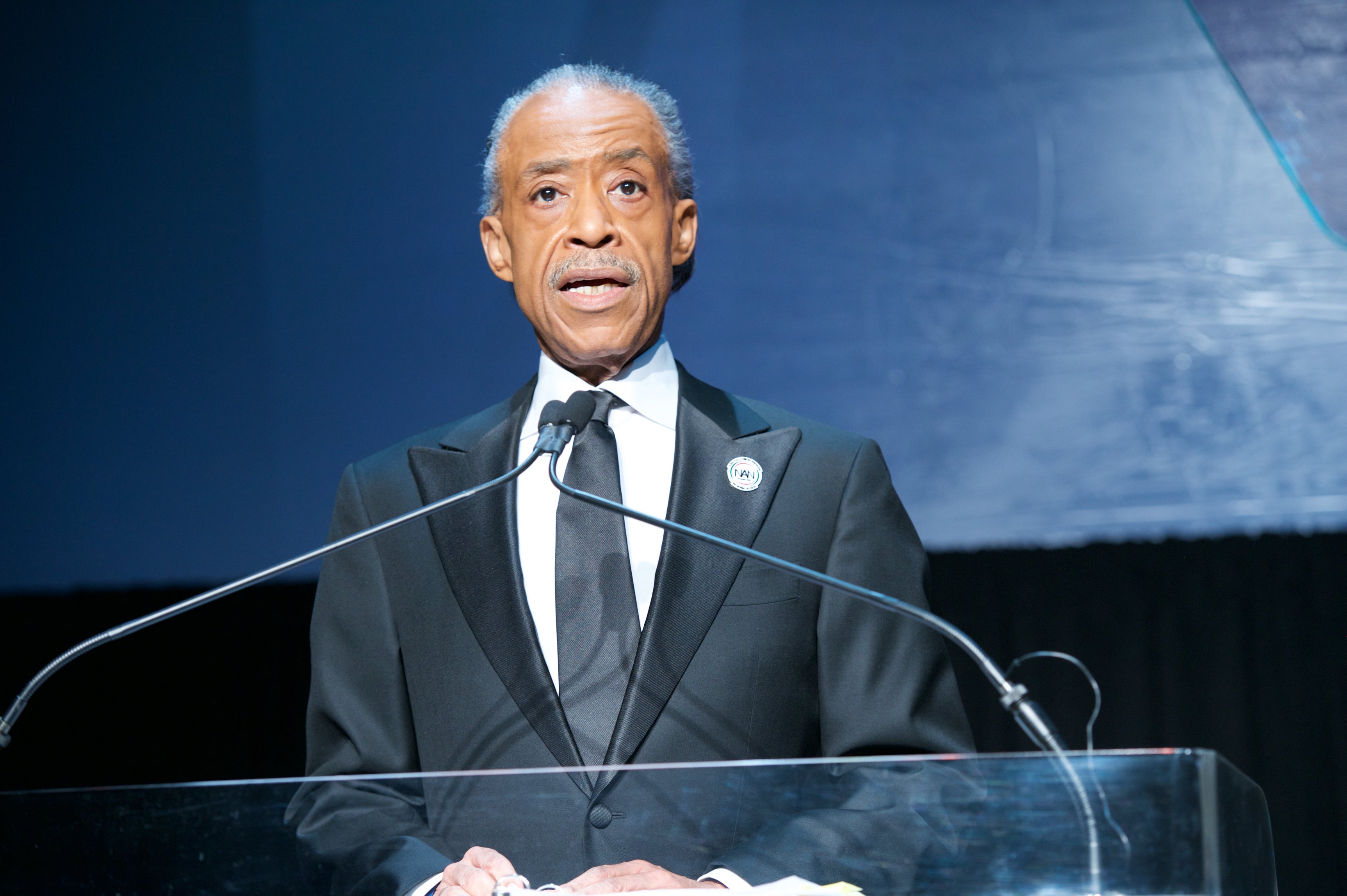
On Friday, President Donald Trump passed an executive order to stop the U.S. entry of refugees for 120 days, restrict travel from seven majority-Muslim nations for 90 days and ban Syrian refugees fleeing a violent war indefinitely. The controversial piece of legislation was appropriately named the #MuslimBan, stemming from Trump’s anti-Muslim rhetoric during the presidential campaign.
In the days following the bill, inconvenience turned into outrage for those traveling between those countries and here—which included U.S. citizens, green card holders and cleared refugees. Thousands protested and everything from boycotting companies to suing the President was proposed.
But in all the chaos this administration has created, some of you may be wondering about the more effective ways to fight this unconstitutional body of legislation.
For this, we talked to National Action Network founder Rev. Al Sharpton about the #MuslimBan and the best ways to be the change want to see.
1. March With a Mission
“Protest is the first step toward real change, because you must expose an issue in order for it to be dealt with. People who criticize it, don’t understand the process and the purpose of it. A march and a protest is not to change something, it is to expose the need to change something. Unless something is in the public eye, then you can’t go to the next step toward changing. So it changes the climate. Had we not protested around the country at airports, they would have never backed up and said, ‘Oh no, we’re not talking about green card people’ or ‘We’re not talking about this, that, the other.’ Because it wouldn’t have been an issue. So the protest made it an issue. The protest made voting rights an issue when we did that Jan. 14. The protest made women an issue when they did it a week later. So you need to protest to bring an issue to the forefront.”
2. Call Your Representatives, They Really Care
“Your demonstration should lead to legislation or litigation, which means it needs to be supported by making laws or going in the courts and scrapping them. Once you grab the public’s attention, it will fizzle out if it doesn’t lead to legislation or litigation. I have been told through the years that every time we’ve phone campaigned—and we are now—I’ve seen congressmen and senators turn around because they feel every call represents a voter in their district. And even though they may be influenced by lobbyists and party leaders, they know they won’t be in the office for lobbyists to call them or the party leaders to call them, if they’re not reelected. So no one ignores people calling them, because they feel like that is a vote against them.”
3. Sue or Support Organizations Already Suing the Trump Administration
“As Sally Yates, the former acting Attorney General, felt, [the Muslim ban] isn’t legal and can be contended in the courts.”
4. Divest
“For those businesses supporting the President’s ban, they need to be made aware: we will not buy their products.”
5. Stand with the Global Community
“Most importantly, we must stand with those in the global community. When you hear [Nkosazana Dlamini] Zuma, head of the African Union, say, ‘Let me get this right: You brought Africans over to the county, to build the country. Now you say you won’t allow refugees in the country,’ [you know] there’s a global community that we can connect with that puts international pressure on changing these laws.”
To learn more about the work of Rev. Al Sharpton and the National Action Network, visit NationalActionNetwork.net.
